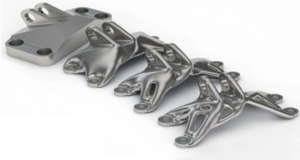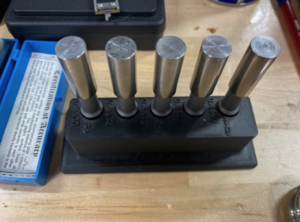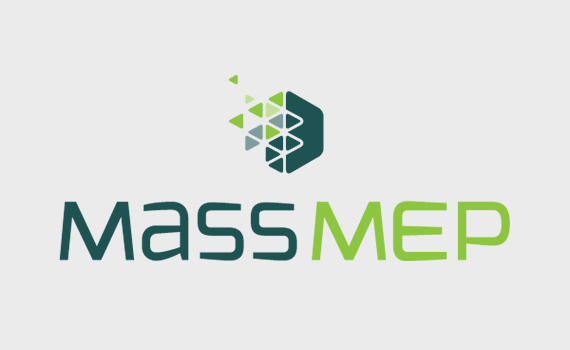Unlocking the Potential of Additive Manufacturing: A Game-Changer for Modern Industry
In today’s fast-paced and ever-evolving industrial landscape, companies are constantly seeking innovative ways to stay competitive. Additive manufacturing (AM), often referred to as 3D printing, has emerged as a transformative technology that is reshaping how products are designed, developed, and delivered. From enhancing production efficiency to mitigating supply chain disruptions, additive manufacturing is proving to be an invaluable tool for companies across various sectors. Have you considered 3D printing at your facility? MassMEP can help you identify potential opportunities within your facility.
What is Additive Manufacturing?
Additive manufacturing is a process where material is added layer by layer to create a final product, as opposed to traditional manufacturing methods that often involve subtracting material through cutting, drilling, or milling. This technology allows for the creation of complex geometries and custom parts with minimal waste, making it a more sustainable and cost-effective option for manufacturing.
How Additive Manufacturing Can Help Companies

- Customization and Flexibility:
- One of the standout advantages of additive manufacturing is its ability to produce customized products on demand. Companies can quickly adapt to customer needs without the need for expensive retooling or extended lead times. This flexibility is particularly beneficial in industries like aerospace, healthcare, and automotive, where bespoke components are often required.
- Reduced Production Costs:
- Traditional manufacturing methods can be costly, especially when producing small batches of parts or prototypes. Additive manufacturing eliminates the need for costly molds and tooling, allowing companies to produce parts more economically. Moreover, the reduction in material waste leads to additional savings and a smaller environmental footprint.
- Accelerated Product Development:
- Additive manufacturing enables rapid prototyping, allowing companies to iterate and refine their designs quickly. This acceleration in product development can significantly reduce time-
 to-market, giving companies a competitive edge in bringing innovative products to consumers faster.
to-market, giving companies a competitive edge in bringing innovative products to consumers faster.
- Additive manufacturing enables rapid prototyping, allowing companies to iterate and refine their designs quickly. This acceleration in product development can significantly reduce time-
- Enhanced Supply Chain Resilience:
- The COVID-19 pandemic exposed vulnerabilities in global supply chains, leading to widespread disruptions in production and delivery. Additive manufacturing offers a solution by enabling decentralized production. Companies can produce parts closer to their end-users, reducing reliance on complex global supply chains and minimizing the risk of delays caused by external factors.
Why Additive Manufacturing is Important
The importance of additive manufacturing lies in its ability to transform traditional manufacturing paradigms. It empowers companies to innovate and stay agile in a rapidly changing market. The shift from mass production to mass customization facilitated by AM not only meets the demands of modern consumers but also aligns with sustainable manufacturing practices.
Addressing Supply Chain Disruptions
The global supply chain is more interconnected and complex than ever before. Any disruption—whether due to geopolitical tensions, natural disasters, or pandemics—can have cascading effects across industries. Additive manufacturing offers a strategic advantage by decentralizing production and allowing companies to produce critical components in-house or closer to the point of use.
By reducing dependency on distant suppliers and enabling localized production, additive manufacturing helps companies maintain continuity in operations, even during global supply chain disruptions. This not only ensures that products are delivered on time but also strengthens the resilience of businesses in the face of unforeseen challenges.
Additive manufacturing is not just a technological advancement; it’s a strategic enabler for companies looking to thrive in a dynamic market. Its ability to enhance customization, reduce costs, accelerate product development, and build supply chain resilience makes it a vital tool for modern manufacturing. As industries continue to evolve, those that embrace additive manufacturing will be better positioned to innovate, adapt, and succeed in the competitive global marketplace.
By integrating additive manufacturing into your operations, your company can unlock new opportunities, overcome supply chain challenges, and lead the charge towards a more sustainable and resilient future. It is time to act today to impact tomorrow.
For more information about Additive Manufacturing please reach out to our Director of Innovation growth services, Ellen Ellsworth, [email protected].




